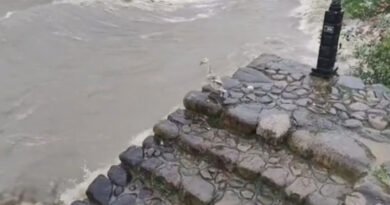Archaeologists Discover Oldest Known Temple Dedicated To Greek Goddess Of Wisdom And War Athena
Experts say they have discovered the oldest known temple dedicated to the Greek goddess of wisdom and war Athena, which contained painted ceramics, helmets, weapons and armour.
The ancient temple, which was discovered at the acropolis at the Elea-Velia archaeological site in the province of Salerno in the south Italian region of Campania, is believed to date back to 540 BC.
The treasures discovered inside the temple are believed to have been offered to Athena after the Battle of Alalia, which took place between 540 and 535 BC off the coast of Corsica.
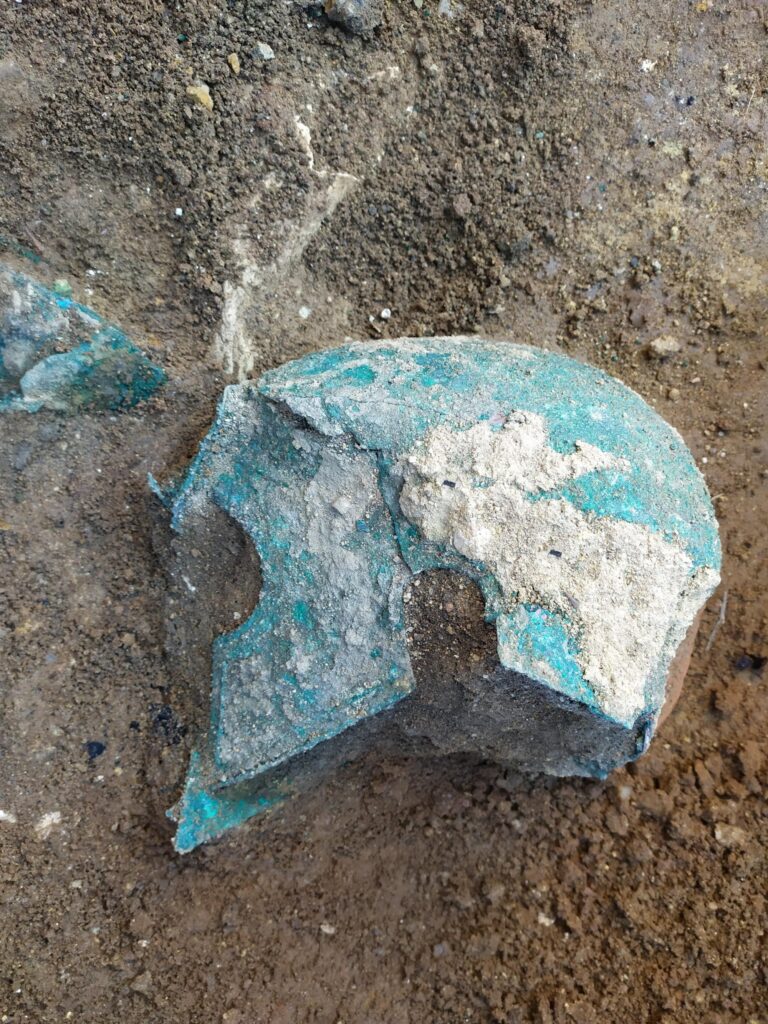
The battle was fought between the Greeks and the Carthaginians, who had formed an alliance with the Etruscans.
The Italian Minister of Culture, Dario Franceschini, said in a statement obtained by Newsflash: “It is important to continue investing with conviction in archaeological research, which never ceases to return important pieces of the history of the Mediterranean.”
The Ministry of Culture said in the statement that archaeologists working at the Archaeological Park of Paestum and Velia, a UNESCO World Heritage Site, have just finished an excavation that has revealed the remains of the temple to Athena.
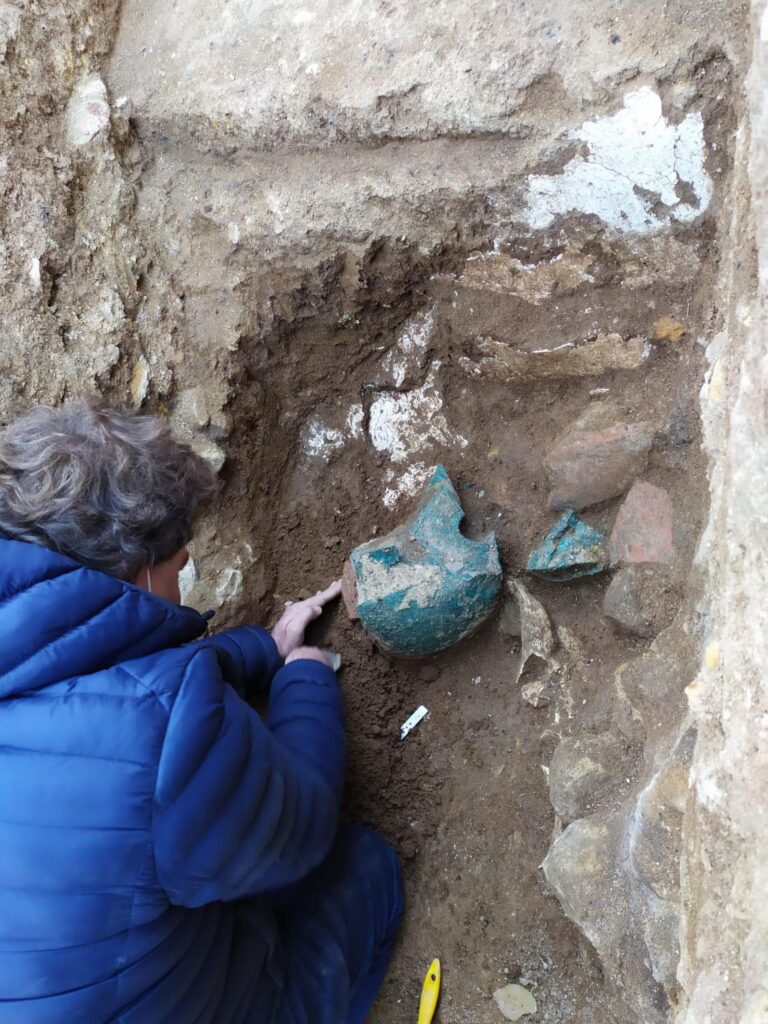
They reportedly found a room that was rectangular in shape and measured at least 18 metres long by seven metres wide.
Inside, they said they found painted ceramics, vases and “numerous metal fragments pertaining to weapons and armour, including two helmets, one Chalcidian and another of the Negau type, in excellent condition.”
A number of items reportedly bore the inscription “IRE”, meaning “sacred”. The experts said the results of this research “shed light on the oldest and most incomplete phases of life of the city, founded around 540 BC by Phocaean settlers from Asia Minor.”
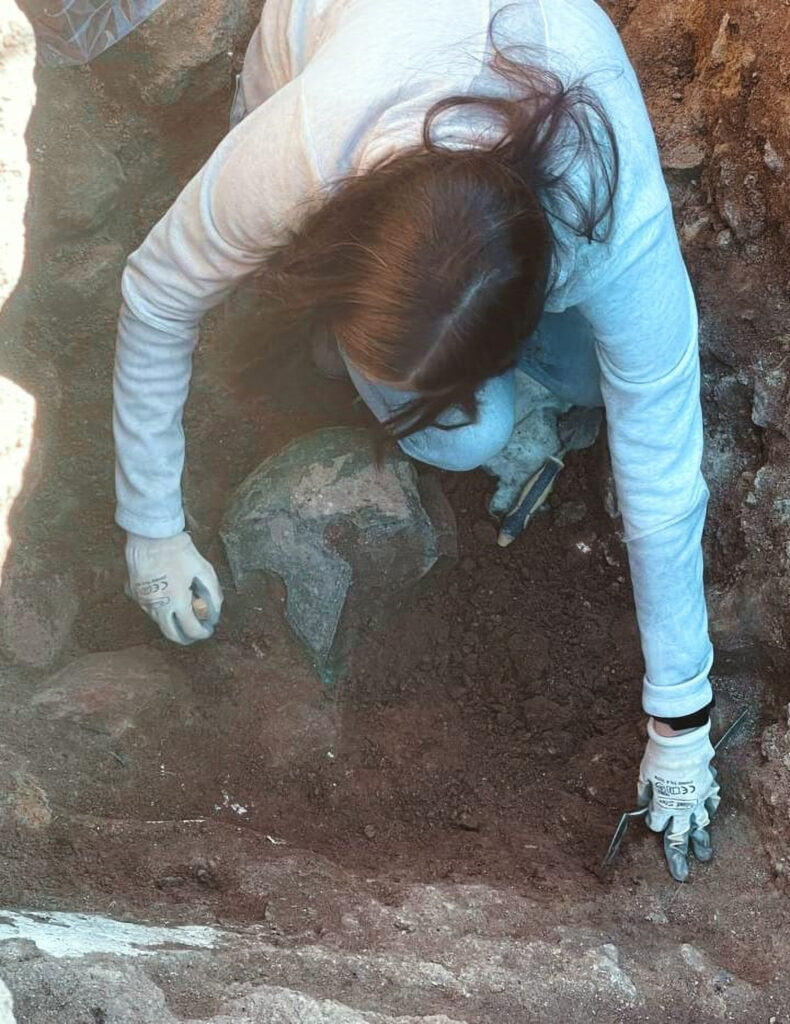
Phocaea was an ancient Greek city on the western coast of Anatolia. Colonists founded the city of Massalia, which is known as Marseille today, as well as Emporion, which is known as Empuries in modern-day Catalonia, as well as Elea, in 575 BC in what is known today as Elea-Velia, in Italy.
Massimo Osanna, Director General of the Museums and Archaeological Park of Paestum and Velia said: “The archaeological finds at the Acropolis of Elea-Velia suggest a sacred purpose for the structure.”
He added: “In all probability, the relics offered to the goddess Athena after the battle of Alalia, the naval battle that saw the Greek refugees of Phocaea and a coalition of Carthaginians and Etruscans, between 541 and 535 BC approximately, off the Tyrrhenian Sea, between Corsica and Sardinia, were preserved in this environment.
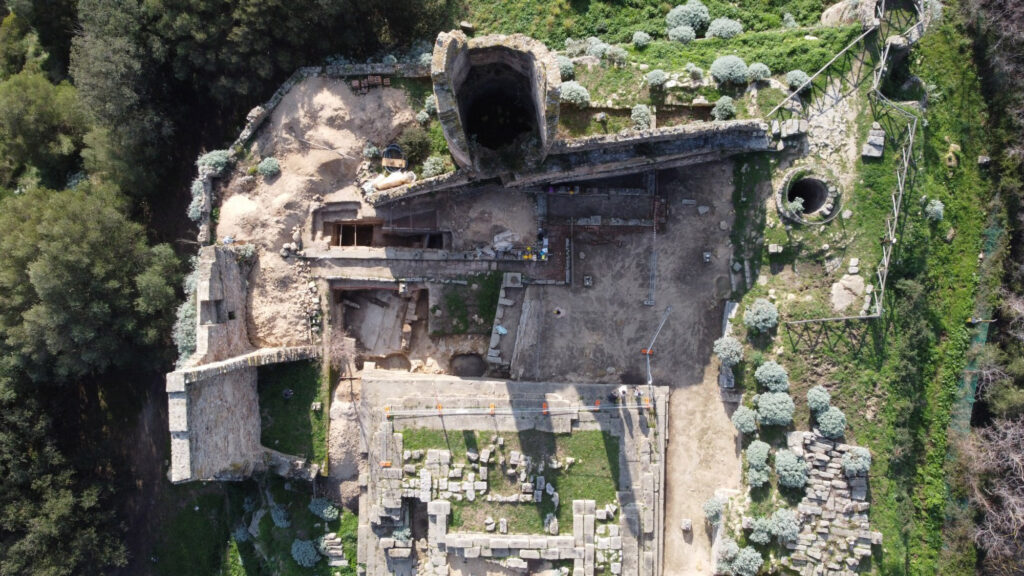
“Freed from the earth only a few days ago, the two helmets still have to be cleaned in the laboratory and studied.
“Inside them, there could be inscriptions, which is quite frequent in ancient armour, and these could help to accurately reconstruct their history, who knows, maybe even the identity of the warriors who wore them.
“Of course, these are first considerations, which already clarify many unpublished details of Eleatic history that took place over 2,500 years ago.”
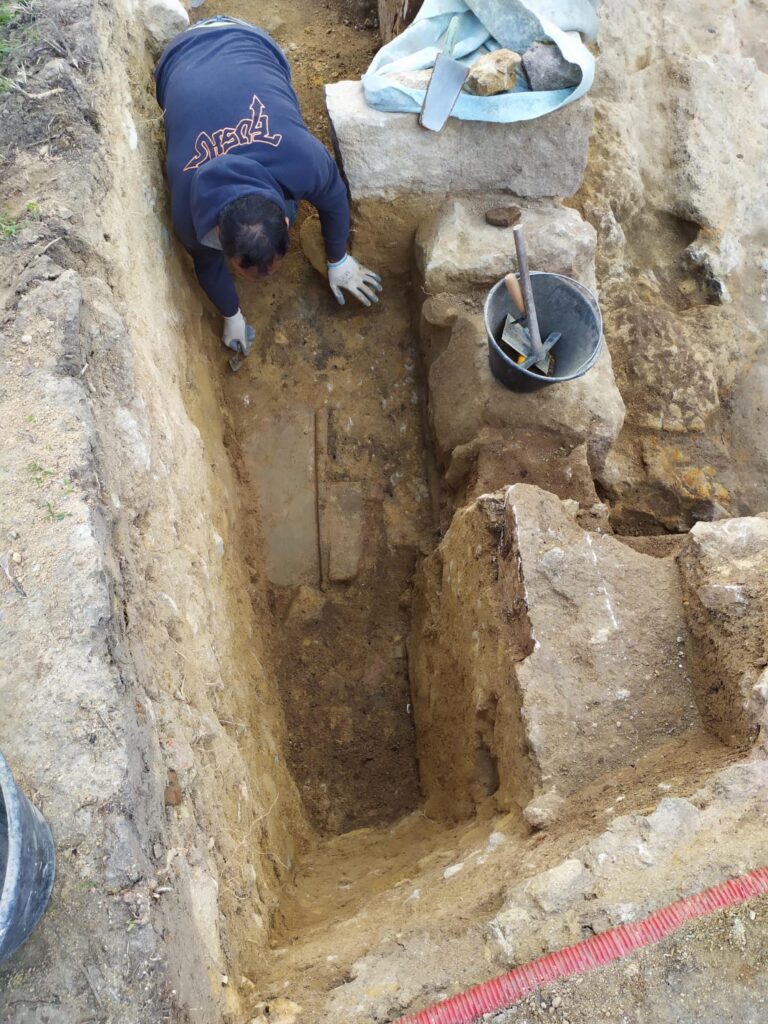
The expert said the temple, which is the oldest known ancient temple dedicated to the worship of the Greek goddess of wisdom and war Athena, date back to between 540 and 530 BC.
He said: “The structure of the oldest temple dates back to 540-530 BC, or rather, the years immediately following the battle of Alalia, while the most recent temple, which was believed to be from the Hellenistic period, dates back to 480-450 BC.”
He added: “It is therefore possible that the Phocaeans fleeing from Alalia raised it immediately after their arrival, as was their custom, after purchasing from the inhabitants of the place the land necessary to settle and resume the flourishing businesses for which they were famous.
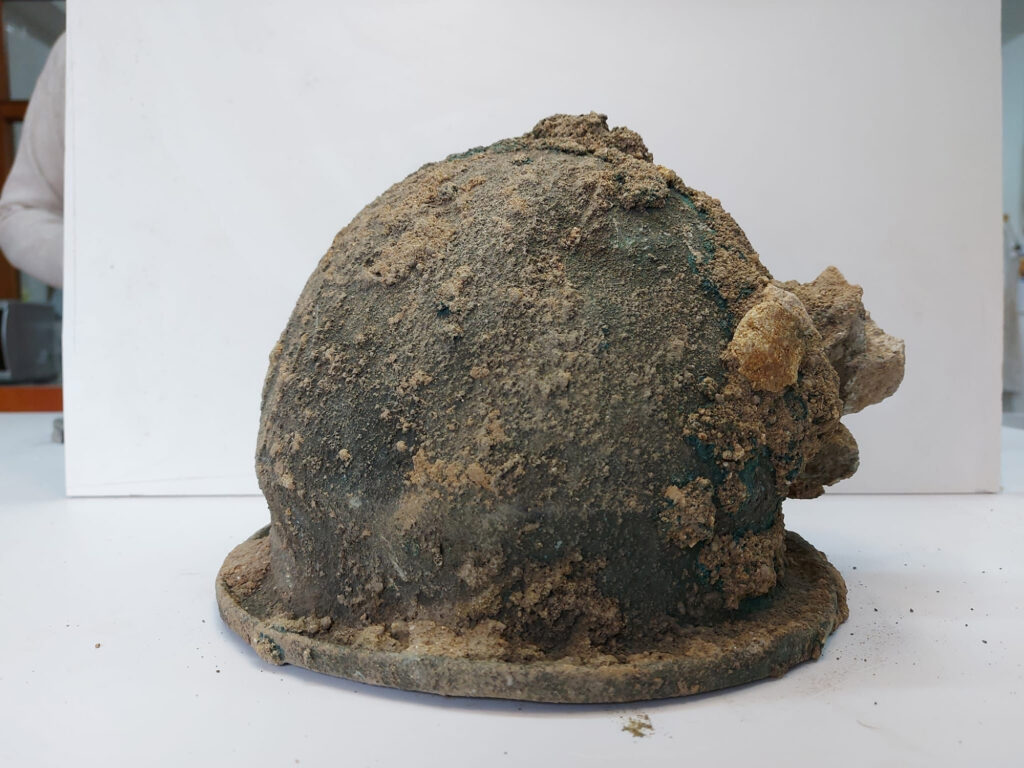
“And to the relics to offer to their goddess to propitiate her benevolence, they added the weapons snatched from their enemies in that epic battle at sea, which, in fact, had changed the balance of power in the Mediterranean.”
The experts are now planning further investigations at the acropolis in a bid to reconstruct and find out more about the ancient Greek colony’s history.

